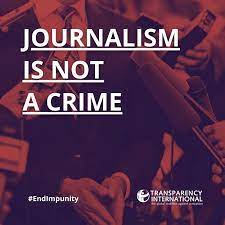by Staff Investigations Reporters
Vague, dichord, mistrust and illegitimacy best describe, summarise and define the manner in which ongoing emotive Gukurahundi sensitisation engagements are being handled by authorities.
While the idea is the best step towards addressing the genocidal act, the implementation and progress towards addressing the grief remain marred with irregularities, racial discrimination and unequal power relations as several media houses were turned away in Zimbabwe’s capital city, Harare this Monday.
“Its actually meant for editors only, we don’t need journalists as yet. May we kindly take your names for our databases and future communications,” one of the ladies from Zimbabwe Media Commission requested despite having been notified of the presence of other editors outside.
Despite the invitations distributed on several media platforms (including journalists diaries group), the conference room meant for Gukurahundi sensitisation meeting remains sealed, with a minimum number and selected media houses in attendance.
There has been invitation circulated on Sunday evening until Monday (today) morning inviting media houses to attend the meeting, much to journalists’ and editors’ surprise when they were turned away.
“DIARY Reminder !!!. Good morning collegues!!! You are all cordially invited to cover Gukurahundi Sensitization breakfast meeting today (Monday 4 March 2024) at Rainbow towers Hotel from 0730.See you there,” reads one of the invitations without specifically emphasising on attendance selection criteria.
The Gukurahundi genocide saw several people (over 20 000) from Matebeleland and some parts of midlands being maimed and killed whilst others were displaced, an incident which has traumatised generations including some failing to access national identification documentation (births, national identity cards, death certificates, among others).
Unlike the justice and reconciliation processes used by some African countries including the Gacaca justice trial systems, Mato Oput and Magamba Spirit of Rwanda, Uganda and Mozambique respectively, the Gukurahundi Genocide leaves a lot to be desired. Information and access to engagement remains a preserve of a clique since the selection of the media houses remains a preserve of biased authorities.
The late former despot Zimbabwean President, Robert Gabriel Mugabe once described the 5th Brigade orchestrated genocide in Matebeleland as a “moment of madness”. The unfortunate moment of madness had therefore left scars which are still bleeding amongst communities where the ruthless army was unleashed upon.
Meanwhile, one of the successful mechanisms for forgiveness and reconciliation among the Acholi of Uganda is the Mato Oput (drinking the bitter herb). Mato Oput is both a process and ritual ceremony that aims at restoring relationships between clans that would have been affected by either an intentional murder or accidental killing.
Mozambique’s (Gorongosa) magamba spirits redress gender and marital injustices, and also help process memories of the civil war. This institutionalised a new form of community healing and it involves participation of the relatives of the gamba spirit who could take part in the healing ceremony.
In the Rwandan Gacaca system, communities at the local level elected judges to hear the trials of genocide suspects accused of all crimes except planning of genocide. The courts gave lower sentences if the person was repentant and sought reconciliation with the community.
Given certain circumstances where some states propose for neutral forgiveness and reconciliation system, Zimbabwe has so far proven to be miles away from engaging in a genuine dialogue which involves multi-stakeholders approach to engagement or closure. With some media personnel and journalists being barred from attending and covering such workshop in the healing process’ infancy, prospects of yielding expected results would therefore remain a pie in the sky.

